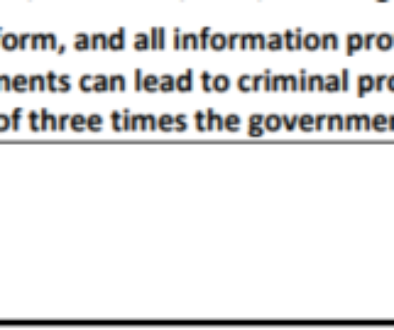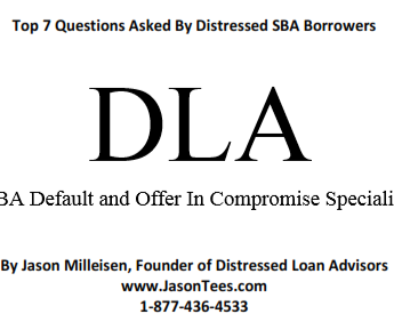Imagine that you successfully settled your debt, only to have it come back around. Or more specifically, only to have a collection company come back around. This is scenario that came up today, so I will explain the common scenarios that are typically in play when a borrower gets a surprise phone call or letter after they think they have already successfully settled their SBA debt:
1) The collection company is trying to collect from your business and not you personally. Most settlements only include the personal guarantors. This means that your S-Corp, LLC, or any other legal entity that owned the business and was listed as the “borrower” is still obligated to pay the debt. But here’s the thing: if that business is closed, has no assets or income, and will never operate again, there is nothing for the collection company to come after. So if you settled your personal guaranty, and they are pursuing a defunct entity, I suggest telling the collection company that the business is closed and has no assets. As long as you are not personally liable, and you never use that entity in the future, it will be difficult for the collection company to get anything from you.
2) The Bank/SBA didn’t properly note the account as settled. If you did settle it, simply sending a copy of the settlement agreement usually does the trick. An actual agreement that was signed both the bank and the guarantor is ideal, but at very least you will need proof that the settlement was approved, and that you paid according to the terms. If you have no written evidence of the settlement, that’s going to be tough to prove, because collections companies can’t simply rely on your word. Even an email or letter from the bank could do the trick, so if you did settle but don’t have written proof, you should reach out to your lender and hope they documented the settlement in their file.
Overall, this situation does happen fairly often. It’s my opinion that the Treasury and collection companies know that many, if not most, of the small business entities has little or no assets to contribute to a settlement, and in many cases they are relying on the guarantor panicking and just paying for it to go away. So if you get that letter, say a few swear words, then take a deep breath and determine if either of the two scenarios applies to you.
Distressed Loan Advisors (http://www.JasonTees.com) offers expert advice about dealing with SBA Loan Default and Forgiveness, and can be reached at . or..


